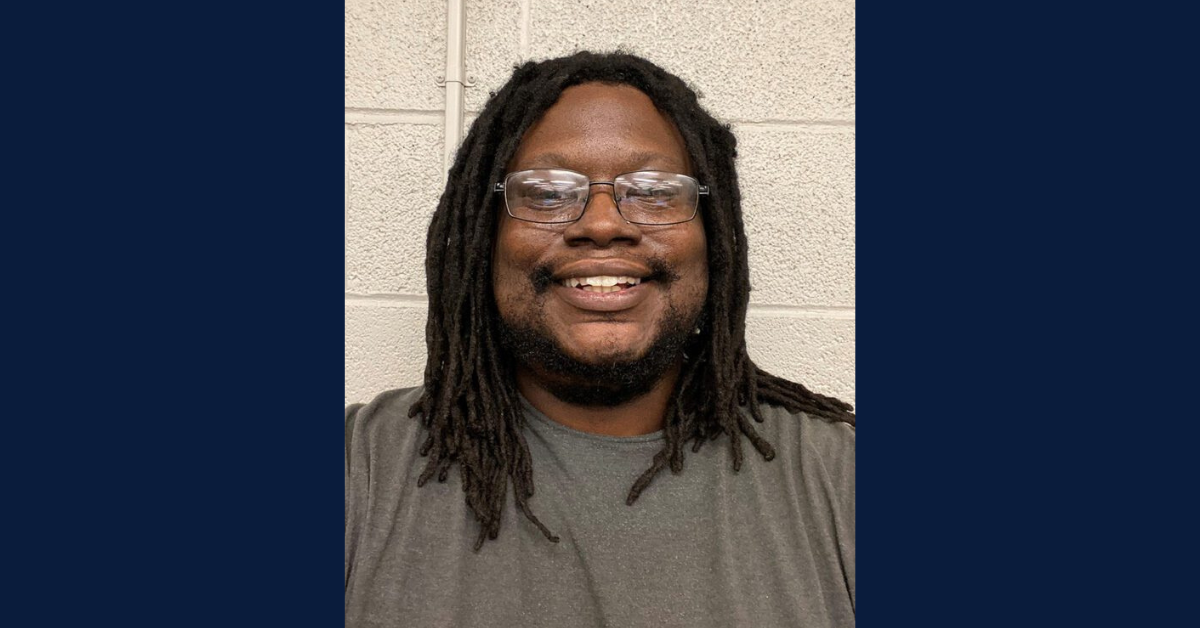
Purdue University Northwest student Deonte Mackie was awarded the prestigious TEAM-UP Together Scholarship for the 2023-2024 academic year. Mackie was the first PNW student and one of only 62 undergraduate students nationwide to receive the scholarship.
“I was surprised when I found out I had received the scholarship,” said Mackie, a third-year Physics major in the College of Engineering and Sciences at PNW. “I didn’t think anything was going to come of it when I applied. I didn’t think I had what they were looking for – I haven’t even been to Space Camp! But this scholarship means I can further my education and pursue my ultimate goal of becoming a physicist and working in planetary science research.”
TEAM-UP Together is a collective action initiative led by the American Institute of Physics, American Association of Physics Teachers, American Astronomical Society, American Physical Society and the Society of Physics Students to stand with the scientific community in taking the next bold step to double the number of African American students earning physics and astronomy bachelor’s degrees annually by 2030. The TEAM-UP Together Scholarship Program provides direct funding and professional development to African American physics and astronomy undergraduate students.
Mackie, a Chicago native who also is minoring in Mathematics, believes his drive to put in the extra work to succeed was something the selection committee saw when they chose him for the scholarship. “This scholarship means a lot to me because it means someone is paying attention to those students who may not be in the spotlight or aren’t considered the ‘standard’ physics student.”
“Nationwide, only 4% of bachelor’s degrees in physics and astronomy go to African Americans,” said Adam Rengstorf, associate professor of Physics and Astronomy and interim chair for the Department of Chemistry and Physics. “This shows that the institutions collaborating on TEAM-UP Together recognize both the PNW Physics program in general as a place that’s doing good work, and recognize Deonte in particular as a promising young physicist whom they want to give the best chance to continue developing into a professional scientist, researcher and citizen.”
Like many 6- or 7-year-olds, Mackie wanted to be an astronaut. The difference was he didn’t want to actually go into space. “I didn’t really understand the pathway to become an astronaut,” said Mackie. “I knew it had something to do with science, but I didn’t know what that was.”
During solar system week in the second grade, Mackie started asking questions about how scientists knew so much about the planets without actually visiting them. “As I got older, it finally clicked and physics made a lot of sense,” said Mackie. “I get to do the research I’m interested in and everything I wanted to do as an astronaut without having to actually go into space. It’s not that I necessarily have a fear of it, it’s just I would prefer to keep my feet on the ground.”
Mackie plans to continue his education by pursuing a doctorate and working as a researcher in either astrophysics or high-energy physics for an organization like the National Aeronautics and Space Administration (NASA) or the European Space Agency (ESA). “The most exciting part of physics is working with other researchers and struggling to figure out the behaviors of the universe,” said Mackie. “I’m excited about the experiments I can do with my background and watching the results unfold.”
